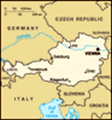Advertisement
From the NY Times: The war in Ukraine has transformed Europe more profoundly than any event since the Cold War’s end in 1989. A peace mentality, most acute in Germany, has given way to a dawning awareness that military power is needed in the pursuit of security and strategic objectives. A continent on autopilot, lulled into amnesia, has been galvanized into an immense effort to save liberty in Ukraine, a freedom widely seen as synonymous with its own.
No more so than my last trip to Europe in November, the war has changed Europe forever. And I think it has changed many of us across the ocean as well. I now hesitate to visit countries on the Russian and Ukrainian border. I see more armed soldiers than just about any time since the Cold War.
In retrospect, it is amazing that I crossed the eleven times zones in Russia on the Trans-Siberian Railway. To do so now would not be safe. Nor would a rail passenger feel as welcome. Perhaps the KGB guy on my train would not be singing Russian lullabies anymore? Maybe the two female Russian Ph.D. students would not be as curious about the US, and our way
of life?
But it is our mindset that has changed.
Again, from the NY Times: The 27-nation European Union was built over decades with the core idea of extending peace across the continent. The notion that economic exchanges, trade and interdependence were the best guarantees against war lay deep in the postwar European psyche, even in dealings with an increasingly hostile Moscow.
And: European states, as part of the union or individually, have pledged more than $50 billion in various forms of aid to Kyiv, imposed 10 rounds of sanctions, absorbed more than eight million Ukrainian refugees (nearly the population of Austria), and largely weaned themselves off Russian oil and gas in a sweeping shift under acute inflationary pressure.
The cost of food, fuel, and shelter have increased dramatically. Yet, we fly over the Atlantic in search of the EU we always wanted, a safe, borderless, one currency continent.
Surviving the pandemic, AND the war, those are the goals of everyone in Europe.
There is a new fee called the European Travel Information and Authorisation System, or
ETIAS fee, which will cost €7 ($7.46 USD) and will apply to foreign visitors between the ages of 18 and 70 years old. This new fee will be required to enter all of the countries that encompass the
Schengen area and will be valid for three years at a time.
The fee and application might seem complicated, but it’s not that different from the Electronic System for Travel Authorization, or ESTA, that the US requires of foreign visitors.
A fee is only one part of Europe's plan to keep better track of traveler information. On top of the fee, 28 European countries are also rolling out a new Entry/Exit System (ESS). This system will replace passport stamps with a digital platform that tracks travelers with biometric data, like face and fingerprint scans.
A small price to pay!
(I will see you in Europe on Wednesday!)
Some quotes:
“There is but one Paris and however hard living may be here…the French air clears up the brain and does one good.” - Vincent van Gogh
“The chief danger about Paris is that it is such a strong stimulant.” - T.S. Eliot
“The whole of Paris is a vast university of Art, Literature and Music. It is worth anyone’s while to dally here for years. Paris is a seminar, a post-graduate course in Everything.”- James Thurber
And the best for last: “In Paris they just simply opened their eyes and stared when we spoke to them in French! We never did succeed in making those idiots understand their own language.” - Mark Twain
Advertisement
Tot: 0.06s; Tpl: 0.008s; cc: 10; qc: 26; dbt: 0.026s; 1; m:domysql w:travelblog (10.17.0.13); sld: 1;
; mem: 1.1mb







